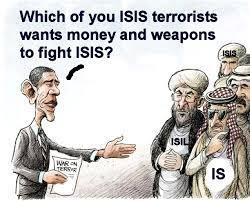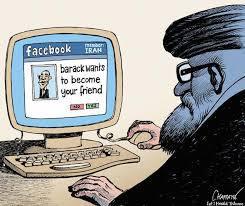A previous post critiqued Andrew Bacevich’s “limits of power” take on world affairs. He derided what he saw as vain attempts to control history, which can’t be done – so don’t even try. It’s true that do-gooder efforts may, for numerous reasons, fail. But I prefer a proactive approach to life rather than a passive fatalism, hence trying to make the world better. And people, throughout the ages, have succeeded at it.

The conventional wisdom now is that America’s 2003 Iraq venture upended a hornets’ nest, causing today’s tsuris, and we should have left well enough alone. A seeming vindication of Bacevich. Well, maybe; but I’m reminded of when Chou En-lai was asked to evaluate the French Revolution. “Too soon to tell,” he replied.
(We did not invade Iraq based on “lies” or manipulated intelligence. All major intelligence services believed Saddam likely had weapons of mass destruction – he was trying hard to make it seem so. The true issue was: did we dare risk that he had them? Yet, to the “knowing what you know now” question, I’d say don’t invade – knowing now how botched it would be, particularly in disbanding the Iraqi army.)

Cartoon by Danziger
Bush 43’s real Iraq sin was willing the ends but not the means – imagining it could be done cheaply and easily. I still think Bacevich is wrong, and we could have succeeded; but if you do aim to alter history, please be prepared for some heavy lifting.

My instincts are hawkish. However, the problem with Obama’s ISIS strategy is not just that it’s ineffectual but it isn’t a strategy at all, more like striking out blindly. ISIS is horrible, yes, but we must weigh the ramifications of battling it.

Maybe we don’t have a dog in this fight, and should just let all these bad guys beat each other to exhaustion, which probably now has to happen, before some halfway sane alternative can possibly, eventually emerge in that afflicted terrain. As columnist Thomas Friedman suggests, we cannot impose a resolution absent a stupendous commitment that isn’t going to happen; Middle Easterners must work this out for themselves, bloody though that may be. Meantime, Iraq’s nationhood is now a lost cause; the Kurds deserve their own state anyway. We should fight only for something that is really worthy of defending, and is defensible – e.g., Kurdistan, or Jordan, if threatened. It was different at the start of Syria’s conflict when we could have gained real strategic advantage by backing the good guys. But Obama funked it, and now there aren’t any good guys.

A recent PBS Frontline program showed that ISIS really started flourishing to fill the vacuum in Syria, defending civilians against Assad, once it became clear that America would not. Local people who support it aren’t crazy. For all these reasons ISIS is a powerful force that won’t melt away with some aerial bombardment. If anything, being under attack by their fetishized enemy feeds their narrative and intensifies loyalty – another reason why our half-baked military campaign seems worse than useless.

* Remember when Obama sought Congressional authorization to bomb Assad’s forces for chemical weapons use? We are now finally bombing in Syria — without Congressional authorization — striking Assad’s enemies. Does this make sense?
